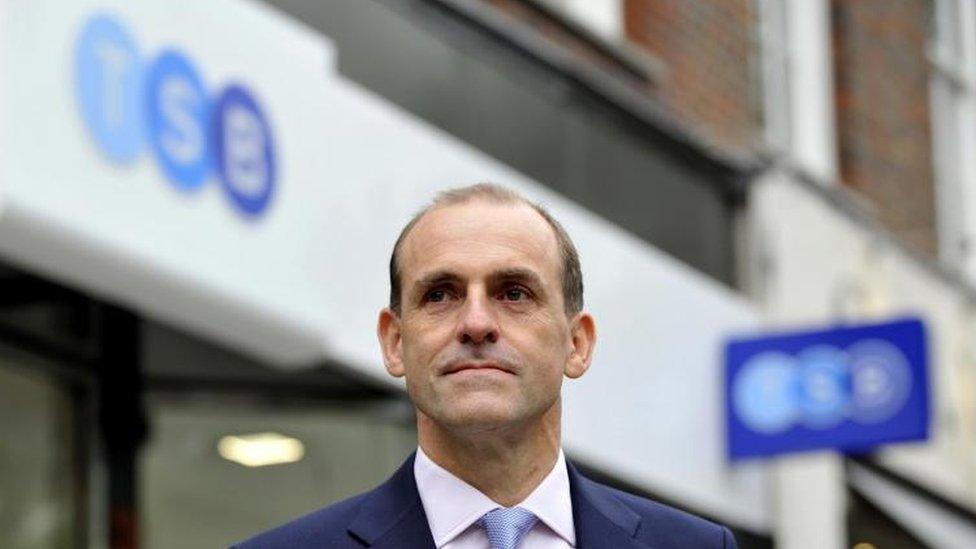TSB crisis continues eight weeks on
- Published
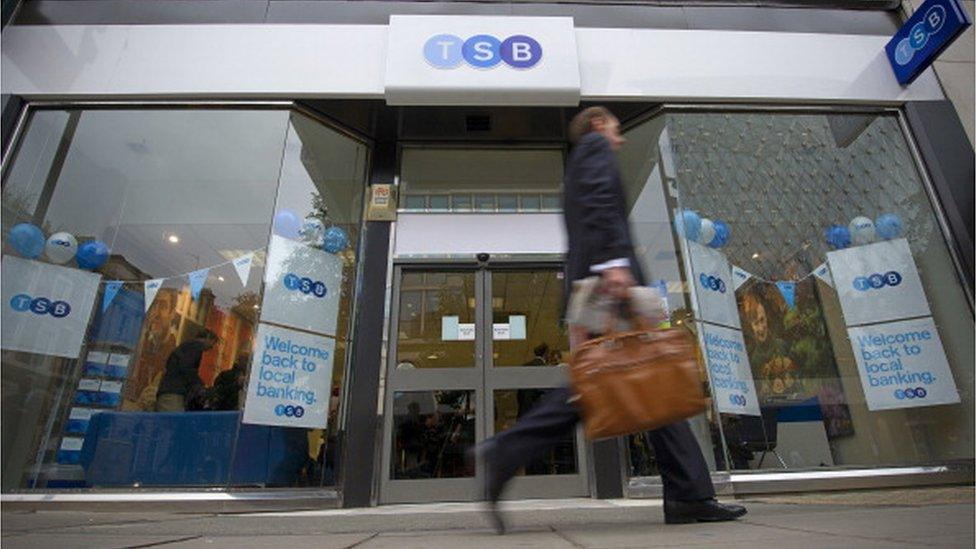
It was almost eight weeks ago that Sarah Hurst realised she couldn't log into her TSB account.
The freelance journalist was one of 1.9 million hit by the computer meltdown which followed the bank's upgrading of its computer systems on 20 April.
Once she was able to view her account, she discovered a £898 payment to her was missing.
She's still waiting for her cash and is one of tens of thousands of TSB customers with unresolved issues.
TSB said the situation hadn't changed since chairman Richard Meddings statement last week. He said then that the bank was "now functioning at, or close to, normal for the majority of TSB customers".
"We recognise that we still have areas where we need to improve performance for our customers and we do not underestimate these remaining issues," he said at the time.

Sarah Hurst says she has received "no help" when she has a problem
Ms Hurst says she's now considering switching accounts.
"My problem could have been unrelated to the IT crisis, but I have no confidence in TSB and really worry about what's going on with my money, and get no help when I have a problem," Sarah said.
TSB's Twitter staff said they couldn't help and she would have to go to her local branch, which raised an old wound she had with the bank.
"I opened the account at a Lloyds in my village five years ago because it was my local branch. But first it became a TSB and then it was closed down."
Compensation for the chaos
Ms Hurst is far alone from being fed up with TSB.
More than 95,000 people have so far complained and the majority - if their complaints are justified - are in line for compensation.
Also getting their money back will be the 1,300 people who were hit by fraudsters in the wake of the the meltdown.
The bank has already admitted that attempts to compromise customers' accounts grew from six to seven cases a day to more than 200 a day at the peak of the fraud attack at the beginning of May.
Meanwhile TSB has also promised to compensate the 370 customers who were wrongly registered as dead by the bank after they tried to switch accounts.
What happens next?
TSB has recruited an extra 1,500 staff to help resolve issues, while another 500 workers have been moved into areas to offer greater help to customers.
The bank is unable to say when all the issues will be resolved but is keen to reiterate that for the vast majority of customers normal banking service has been resumed.
Chief executive Paul Pester, who has faced calls for his resignation, said last week: "We remain focused on doing whatever it takes to put things right."
TSB chief executive Paul Pester during his last appearance before MPs
The bank has commissioned an independent review from lawyers Slaughter & May which is expected to detail what went wrong and what lessons need to be learned.
The financial regulators have been undertaking their own investigations alongside that.
Paul Pester said: "We are making progress in understanding the root cause of the problems."
But he will be understandably nervous about his future when the reports are published - although that date is likely to be some weeks away.
What caused the problems?
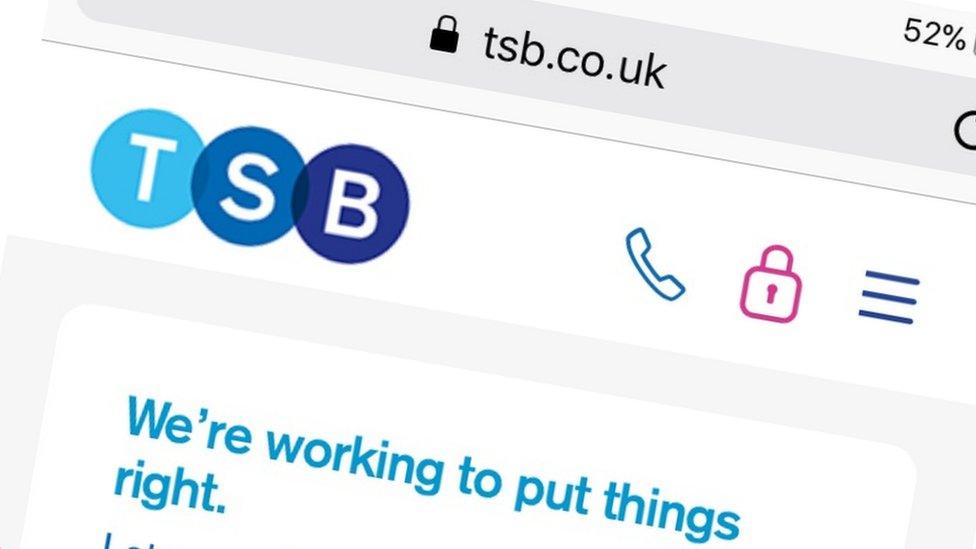
When TSB split from the Lloyds Banking Group, it continued to use its computer system while a new one was developed.
When it was ready, TSB moved customers' data from the Lloyds platform to its own.
This was a long-planned disruption to the service. The bank said it informed customers of the change, and that it would lead to them being unable to use online banking or payment systems that weekend.
That led to two problems. First, many customers said they were unaware of the changes and so were caught out. Second, customers experienced difficulties long after the deadline that TSB had promised things would be fixed.

Are you a TSB customer still affected by these banking problems? Email haveyoursay@bbc.co.uk , externalwith your stories.
Please include a contact number if you are willing to speak to a BBC journalist. You can also contact us in the following ways:
WhatsApp: +44 7555 173285
Send pictures/video to yourpics@bbc.co.uk, external
Tweet: @BBC_HaveYourSay, external
Send an SMS or MMS to 61124 (UK) or +44 7624 800 100 (international)
Please read our terms & conditions and privacy policy
- Published7 June 2018
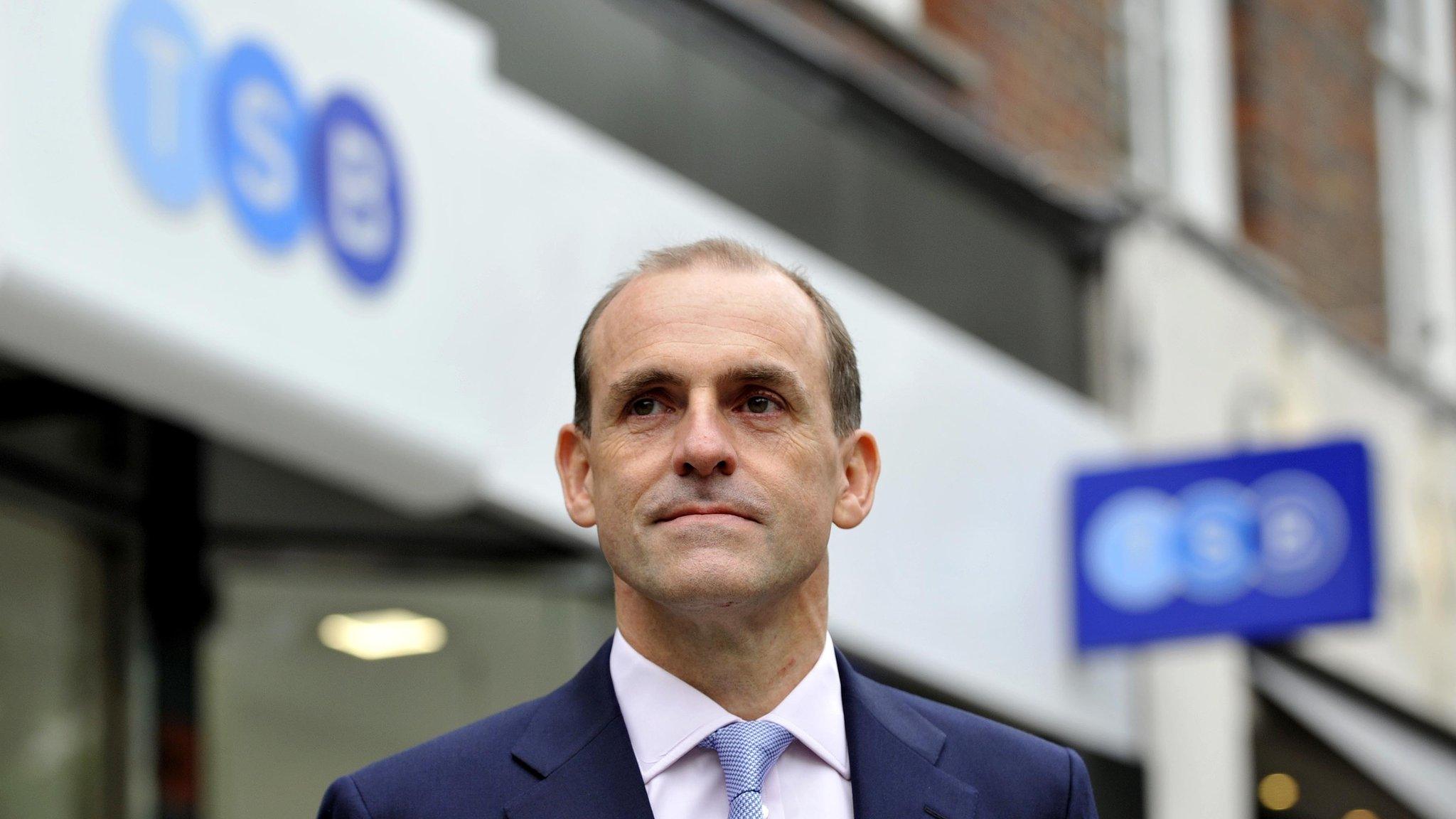
- Published6 June 2018
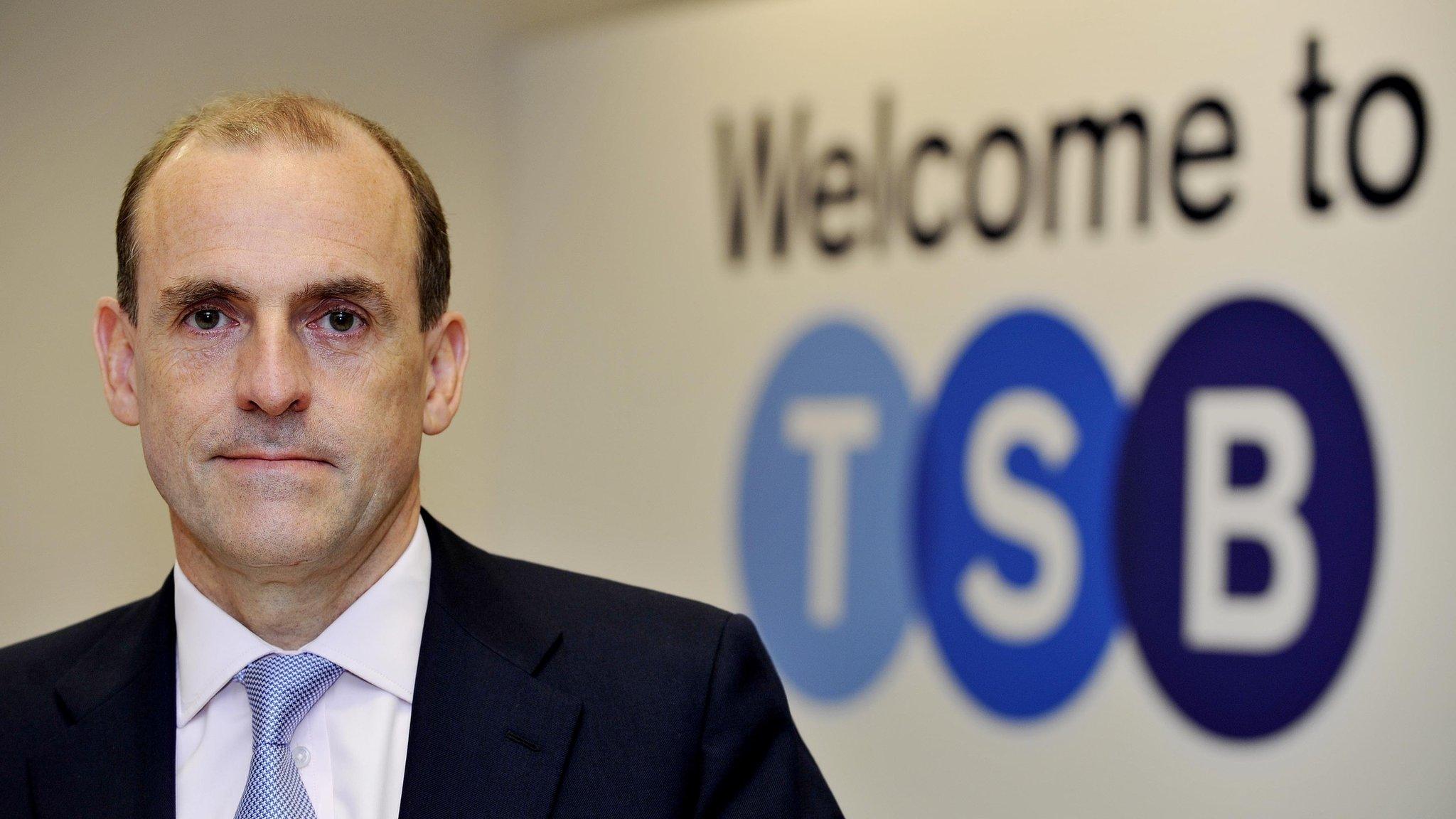
- Published6 June 2018
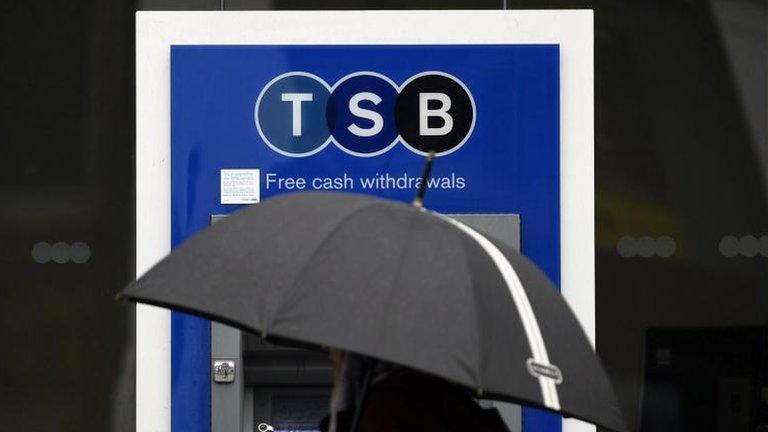
- Published28 April 2018
